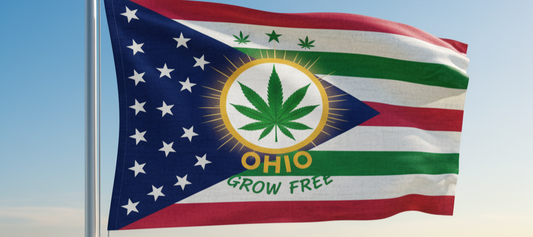What is THCA
Discovering THCA? The Raw, Non-Psychoactive Cannabinoid
When you think of cannabis, you probably think of THC and its well-known intoxicating effects. But what if we told you that your raw, unheated cannabis flower doesn't actually contain THC? Instead, it contains its non-psychoactive precursor, **THCA**. Understanding the difference between these two cannabinoids is key to unlocking the full potential of the plant. So, what exactly is THCA, and why is it becoming a hot topic in the cannabis world?
So, What Exactly Is THCA?
THCA, or **tetrahydrocannabinolic acid**, is a cannabinoid acid found in raw and live cannabis plants. In its natural state, it is the most abundant cannabinoid in most cannabis strains. The key thing to remember about THCA is that it is **non-intoxicating**. In other words, consuming THCA on its own—by eating raw cannabis, for example—will not produce a high.
Think of it like a raw ingredient. Just as you wouldn't get the flavor of a cake by eating raw flour and sugar, you don't get the effects of THC from consuming raw THCA. It's the inactive, "pre-cooked" version of the cannabinoid we all know.
THCA vs. THC: The Key Difference
The relationship between THCA and THC is a simple but crucial one. All it takes to transform THCA into THC is a little heat. This process is called **decarboxylation**. When you smoke, vape, or bake cannabis, the heat causes the THCA molecule to shed its acidic component, turning it into the THC molecule that can interact with your body's endocannabinoid system to produce a high.
Here’s a simple way to remember it:
- **Raw Cannabis:** High in **THCA**, non-psychoactive.
- **Heated Cannabis:** THCA converts to **THC**, becomes psychoactive.
This is why you can juice or blend raw cannabis flower for potential therapeutic benefits without feeling any intoxicating effects.
Why Is THCA Popular?
In recent years, THCA has gained popularity for two main reasons:
- Potential Health Benefits: Research into the benefits of raw cannabinoids is still in its early stages, but some studies suggest that THCA may have anti-inflammatory, neuroprotective, and anti-nausea properties. Many people are adding raw cannabis to their diet to get these benefits without the high.
- Legal Loopholes: In some regions, cannabis laws are based on the percentage of THC, not THCA. This has led to the rise of products that are high in THCA but contain very little THC. When these products are smoked or vaped, the THCA converts to THC, effectively providing a potent, psychoactive experience while technically remaining a legal product until it is heated.





